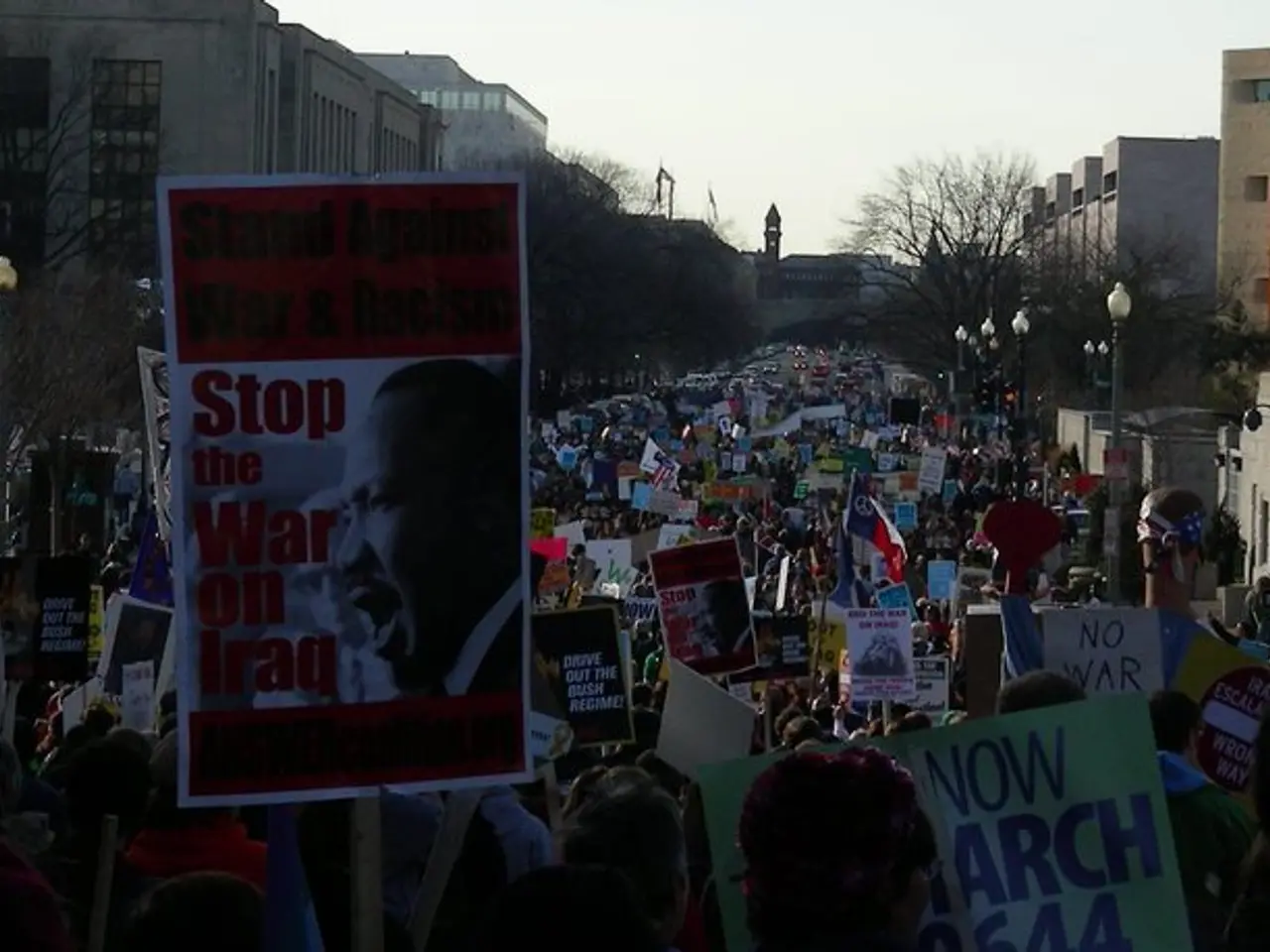Kenya's unintentional advancement towards violent extremism and organized disorder due to state actions
=================================================================================================================
In a democracy, the suppression of dissent can have profound and far-reaching implications, particularly on national security and social cohesion. A recent example of this can be seen in Kenya, where the use of brute force to quell protests has raised concerns about the long-term effects on the country's stability and unity.
National Security Implications
The erosion of public trust is one of the most significant consequences of suppressing dissent. When citizens feel marginalized or silenced, they are less likely to cooperate with authorities, making it difficult for the state to effectively address security concerns. This lack of cooperation can lead to gaps in intelligence, making it harder for the state to anticipate and prevent threats.
Repression can also radicalize individuals and groups, pushing them towards more extreme actions. This can lead to increased militancy or terrorism, posing a significant threat to national stability and security. The deployment of high-calibre rifles against demonstrators armed only with placards, as seen in Kenya, can exacerbate this radicalization.
The chilling effect on information sharing is another concern. Suppressing dissent can discourage people from sharing critical information that might be useful for national security. This can lead to gaps in intelligence, making it harder for the state to anticipate and prevent threats.
Social Cohesion Implications
Repression can also exacerbate social divisions, creating an atmosphere of fear and alienating marginalized groups. This can lead to further fragmentation and polarization within society, weakening social bonds and cohesion. The heavy-handed police operations and state abuses have fueled extremist recruitment in countries like Nigeria and Kenya.
The suppression of dissent can also undermine the legitimacy of the government in the eyes of its citizens. This can lead to continuous unrest and instability, as seen in various historical contexts where repression has fueled ongoing protests and dissatisfaction.
The long-term effect of suppressing dissent is a decline in democratic norms and institutions. This can result in a populace that feels disconnected from the political process, further eroding social cohesion.
Conclusion
In conclusion, the use of brute force to suppress dissent can lead to decreased national security through increased radicalization and erosion of public trust, while also weakening social cohesion by fostering social fragmentation and decreased civic engagement. It is crucial for democratic states to approach crowd control with discernment, negotiation, and restraint, rather than sniper rifles and battalion formations.
The solution lies in rethinking police training, deployment, and arming for public order management. Security personnel must learn to distinguish between legitimate public dissent and genuine security threats. The current state response to protests risks triggering a proliferation of Small Arms and Light Weapons, with citizens, increasingly alienated and fearful, seeking their own means of self-defence.
The suppression of dissent can undermine a state's counter-terrorism and Preventing and Countering Violent Extremism efforts. A state that criminalises dissent is one step away from losing the moral authority to govern. The deployment of government-sanctioned "goons" to infiltrate or quell protests is unconstitutional and suicidal.
The current state response to protests risks turning peaceful protesters into radicalized extremists, fuelling a slide into violent extremism and chaos. A state must maintain its monopoly of violence, never share or outsource it, but the deployment of goons could lead to organized criminal gangs.
A government that fears its own people is one step away from authoritarianism. The recent images of peaceful protesters being bundled into police trucks, attacked by goons, and having gunshot wounds serve as a stark reminder of the dangers of suppressing dissent. It is essential for democratic states to learn from history and strive for a more inclusive and peaceful approach to managing public dissent.
References
[1] "The Impact of Repression on Terrorism: A Cross-National Analysis." Journal of Peace Research. 2006.
[2] "The Political Logic of Violence: State Repression and the Spread of Protest in Authoritarian Regimes." Comparative Political Studies. 2013.
[3] "Repression and Protest: How Governments Respond to Collective Action." Annual Review of Political Science. 2014.
[4] "The Social Costs of Repression: Evidence from the Arab Spring." American Political Science Review. 2015.
[5] "The Long-Term Effects of Repression on Civic Engagement: Evidence from Eastern Europe." Comparative Political Studies. 2017.
- In the realm of general news, the suppression of dissent in a democracy can have disastrous consequences, particularly in the context of health issues, as the erosion of public trust can hinder cooperation with health authorities, hindering effective responses to pandemics or other health crises.
- War-and-conflicts and crime-and-justice sectors can be severely impacted by the suppression of dissent, as repression can radicalize individuals and groups, leading to increased militancy or terrorism, posing a threat to both national security and peace.
- The suppression of dissent can have far-reaching implications on the epaper, as the chilling effect on information sharing can lead to gaps in intelligence, making it harder for authorities to anticipate and prevent threats, and undermining the credibility of news reports.








